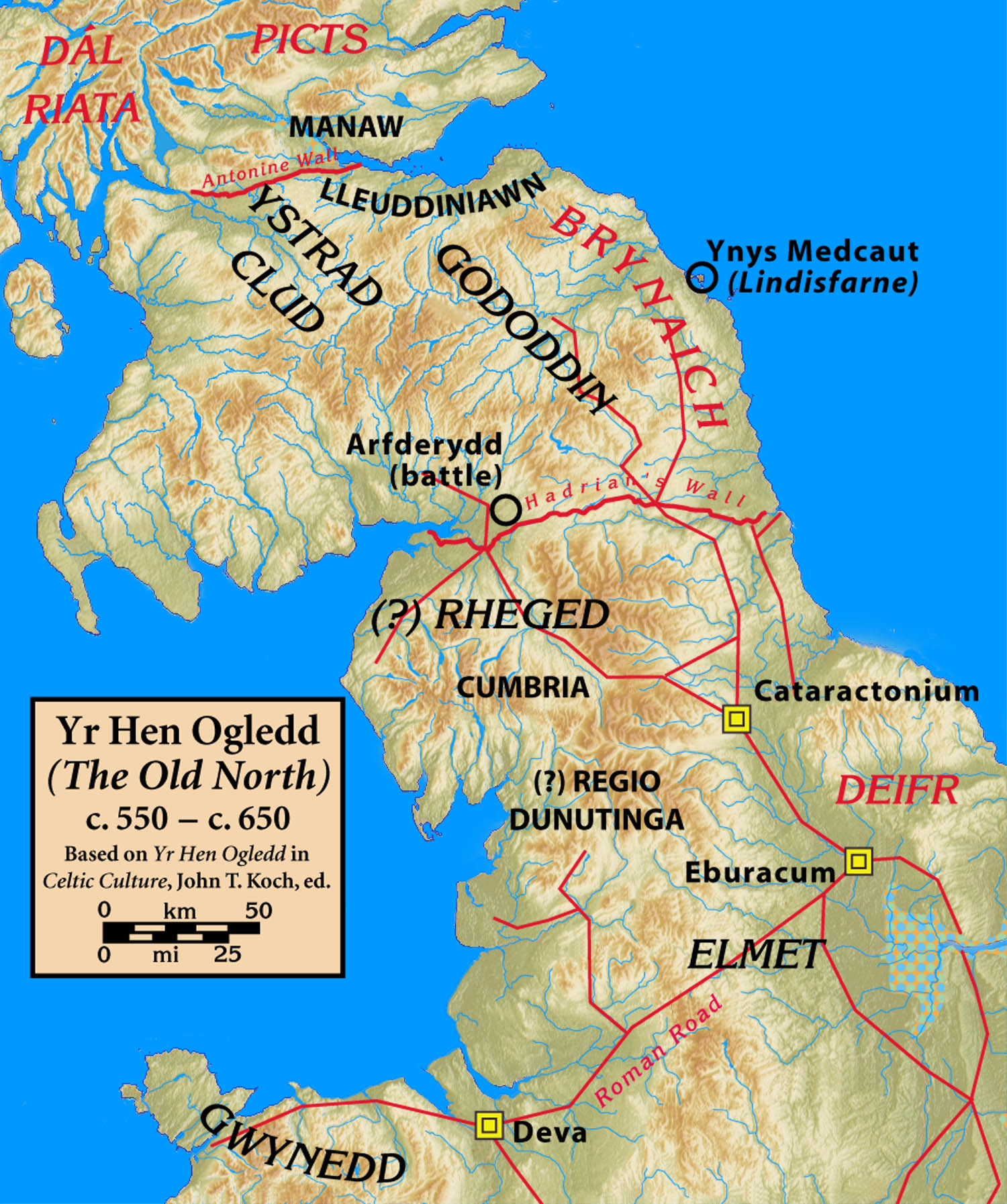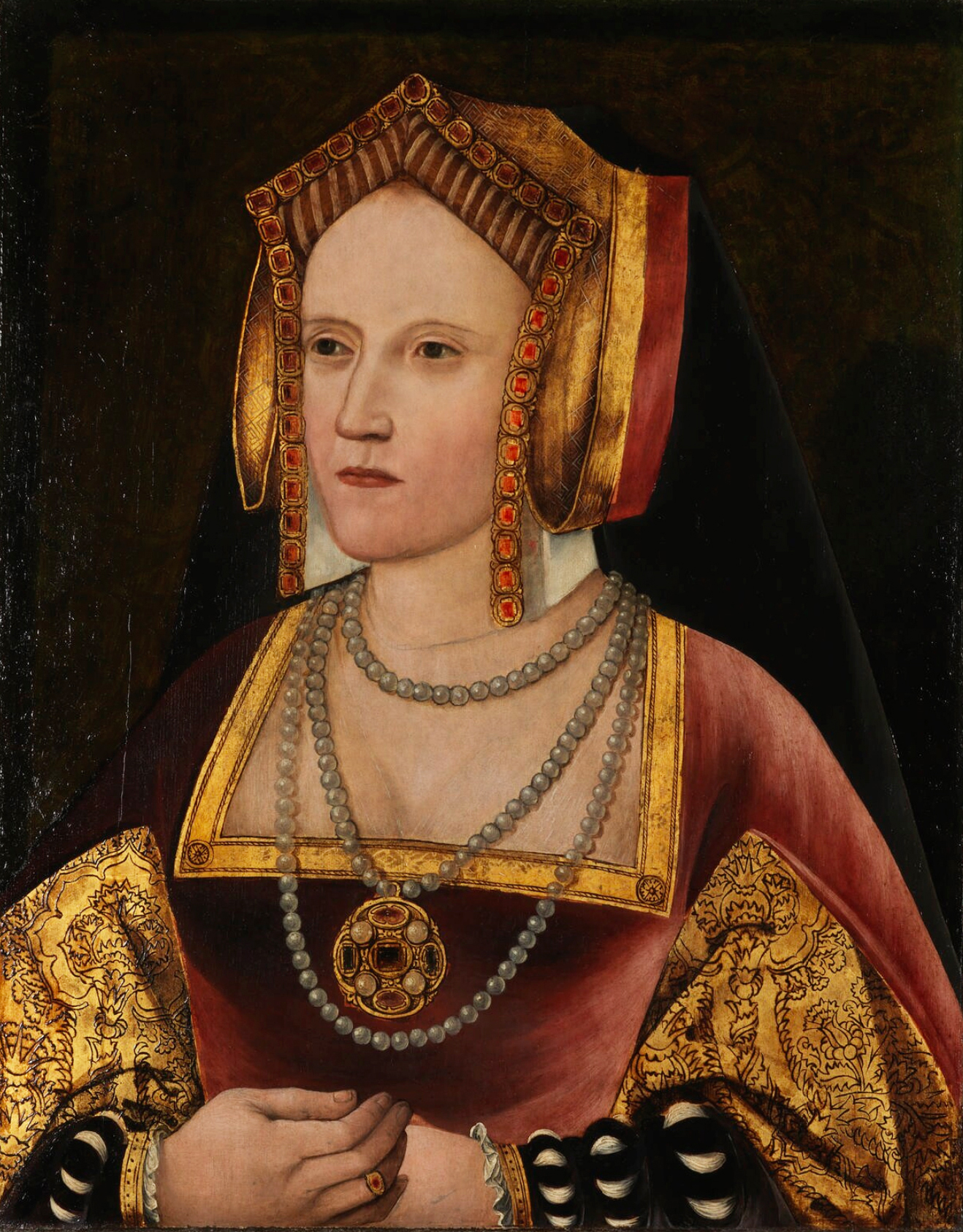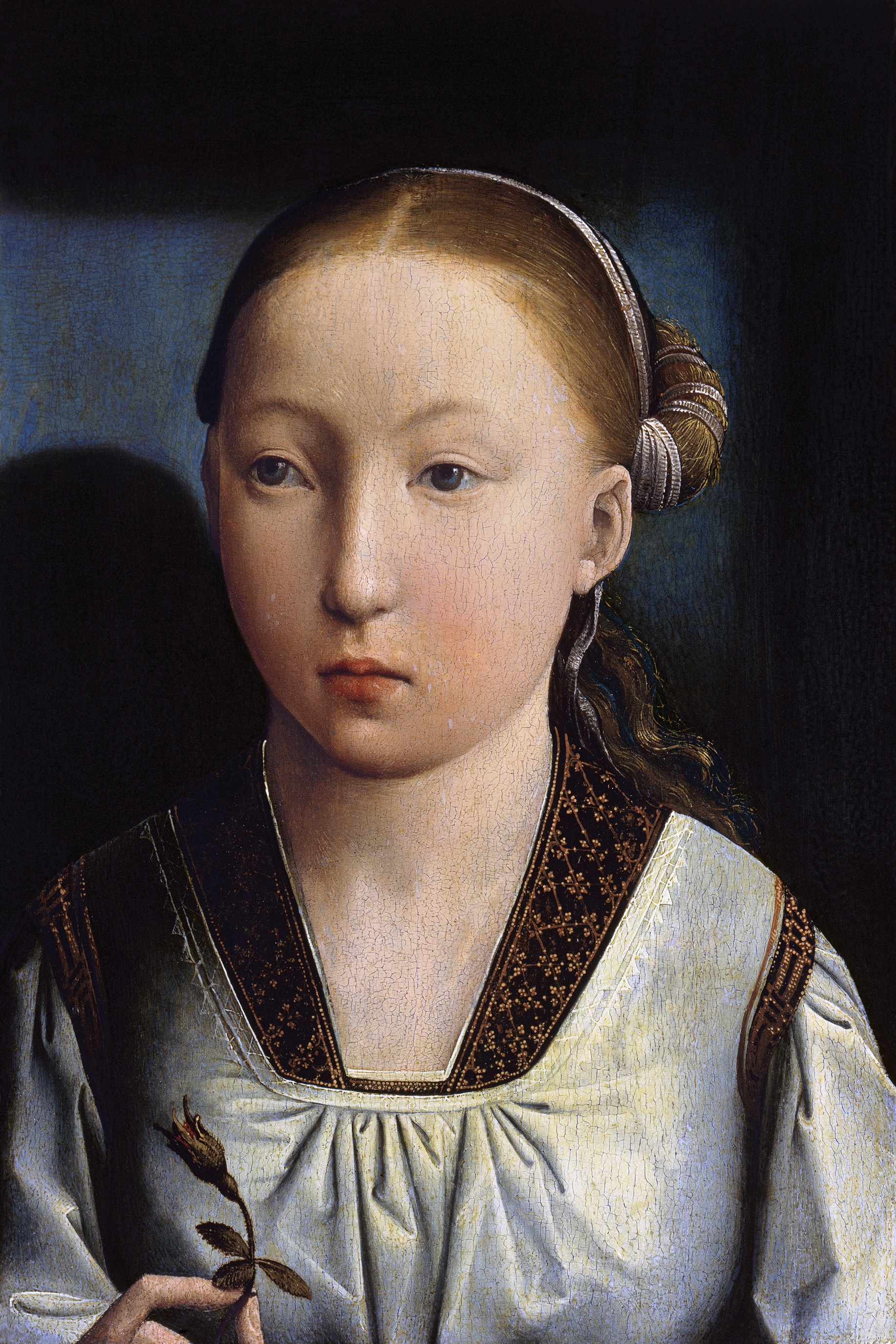|
Rhys Ap Gruffydd (rebel)
Rhys ap Gruffydd (1508–December 1531) was a powerful Welsh landowner who was accused of rebelling against King Henry VIII by plotting with James V of Scotland to become Prince of Wales. He was executed as a rebel. He married Lady Catherine Howard (b. abt 1499 Ashwellthorpe, Norfolk, England), the daughter of Thomas Howard, 2nd Duke of Norfolk and his second wife Agnes Tilney. Early life Rhys was the grandson of Rhys ap Thomas, the most powerful man in Wales and close ally of Henry VIII. His father, Gruffydd ap Rhys ap Thomas, died in 1521, leaving him his grandfather's heir. In 1524 Rhys married Catherine Howard, daughter of Thomas Howard, 2nd Duke of Norfolk. As his grandfather's heir, Rhys expected to inherit his estates and titles. When Rhys ap Thomas died in 1525, Henry VIII gave his most important titles and powers to Walter Devereux, Lord Ferrers, leading to a feud between Rhys and Ferrers, which escalated over the next few years. Conflict with Ferrers Rhys attempted ... [...More Info...] [...Related Items...] OR: [Wikipedia] [Google] [Baidu] |
COA Sir Rhys Ap Thomas
Coa may refer to: Places * Coa, County Fermanagh, a rural community in County Fermanagh, Northern Ireland * Côa River, a tributary of the Douro, Portugal ** Battle of Coa, part of the Peninsular War period of the Napoleonic Wars ** Côa Valley Paleolithic Art, one of the biggest open air Paleolithic art sites * Quwê (or Coa), an Assyrian vassal state or province from the 9th century BC to around 627 BCE in the lowlands of eastern Cilicia ** Adana, the ancient capital of Quwê, also called Quwê or Coa * Côa (Mozambique), central Mozambique People * Eibar Coa (born 1971) Other uses * Coa de jima, or coa, a specialized tool for harvesting agave cactus * Continental Airlines, major US airline * c.o.a., coat of arms * Coa (argot) (:es:Coa (jerga), es), criminal slang used in Chile See also * COA (other) * ''Coea'', a genus of butterflies * ''Coua'', a genus of birds * Acacia koa, Koa, a species of tree {{Disambiguation, geo, surname ... [...More Info...] [...Related Items...] OR: [Wikipedia] [Google] [Baidu] |
Rheged
Rheged () was one of the kingdoms of the ''Hen Ogledd'' ("Old North"), the Brittonic-speaking region of what is now Northern England and southern Scotland, during the post-Roman era and Early Middle Ages. It is recorded in several poetic and bardic sources, although its borders are not described in any of them. A recent archaeological discovery suggests that its stronghold was located in what is now Galloway in Scotland rather than, as was previously speculated, being in Cumbria. Rheged possibly extended into Lancashire and other parts of northern England. In some sources, Rheged is intimately associated with the king Urien Rheged and his family. Its inhabitants spoke Cumbric, a Brittonic dialect closely related to Old Welsh. Etymology The origin of the name ''Rheged'' has been described as "problematic". One Brittonic-language solution is that the name may be a compound of ''rö-'', a prefix meaning "great", and ''cę:d'' meaning "wood, forest" (c.f. Welsh ''coed'') although ... [...More Info...] [...Related Items...] OR: [Wikipedia] [Google] [Baidu] |
People Executed Under The Tudors For Treason Against England
A person ( : people) is a being that has certain capacities or attributes such as reason, morality, consciousness or self-consciousness, and being a part of a culturally established form of social relations such as kinship, ownership of property, or legal responsibility. The defining features of personhood and, consequently, what makes a person count as a person, differ widely among cultures and contexts. In addition to the question of personhood, of what makes a being count as a person to begin with, there are further questions about personal identity and self: both about what makes any particular person that particular person instead of another, and about what makes a person at one time the same person as they were or will be at another time despite any intervening changes. The plural form "people" is often used to refer to an entire nation or ethnic group (as in "a people"), and this was the original meaning of the word; it subsequently acquired its use as a plural form of per ... [...More Info...] [...Related Items...] OR: [Wikipedia] [Google] [Baidu] |
16th-century Welsh Politicians
The 16th century begins with the Julian year 1501 ( MDI) and ends with either the Julian or the Gregorian year 1600 ( MDC) (depending on the reckoning used; the Gregorian calendar introduced a lapse of 10 days in October 1582). The 16th century is regarded by historians as the century which saw the rise of Western civilization and the Islamic gunpowder empires. The Renaissance in Italy and Europe saw the emergence of important artists, authors and scientists, and led to the foundation of important subjects which include accounting and political science. Copernicus proposed the heliocentric universe, which was met with strong resistance, and Tycho Brahe refuted the theory of celestial spheres through observational measurement of the 1572 appearance of a Milky Way supernova. These events directly challenged the long-held notion of an immutable universe supported by Ptolemy and Aristotle, and led to major revolutions in astronomy and science. Galileo Galilei became a champion o ... [...More Info...] [...Related Items...] OR: [Wikipedia] [Google] [Baidu] |
1531 Deaths
Year 1531 ( MDXXXI) was a common year starting on Sunday (link will display the full calendar) of the Julian calendar. Events January–June * January 26 – Lisbon, Portugal is hit by an earthquake, in which thousands die. * February 27 – Lutheran princes in the Holy Roman Empire form an alliance known as the Schmalkaldic League. * February or March – Battle of Antukyah: Ahmad ibn Ibrahim al-Ghazi of the Adal Sultanate defeats the Ethiopian army. * April – Battle of Puná: Francisco Pizarro defeats the island's native inhabitants. * April 12 – Askiya Musa is assassinated by his brothers in Songhai; Askia Mohammad Benkan is enthroned the same day. * April 16 – The city of Puebla, Mexico, is founded. * May – The third Dalecarlian rebellion in Sweden appears to be over, when the king accepts an offer made by the rebels, but violence flares up again the following year. * June 24 – The city of San Juan del Río, Mexico, ... [...More Info...] [...Related Items...] OR: [Wikipedia] [Google] [Baidu] |
1508 Births
Fifteen or 15 may refer to: *15 (number), the natural number following 14 and preceding 16 *one of the years 15 BC, AD 15, 1915, 2015 Music *Fifteen (band), a punk rock band Albums * ''15'' (Buckcherry album), 2005 * ''15'' (Ani Lorak album), 2007 * ''15'' (Phatfish album), 2008 * ''15'' (mixtape), a 2018 mixtape by Bhad Bhabie * ''Fifteen'' (Green River Ordinance album), 2016 * ''Fifteen'' (The Wailin' Jennys album), 2017 * ''Fifteen'', a 2012 album by Colin James Songs * "Fifteen" (song), a 2008 song by Taylor Swift *"Fifteen", a song by Harry Belafonte from the album '' Love Is a Gentle Thing'' *"15", a song by Rilo Kiley from the album ''Under the Blacklight'' *"15", a song by Marilyn Manson from the album ''The High End of Low'' *"The 15th", a 1979 song by Wire Other uses *Fifteen, Ohio, a community in the United States * ''15'' (film), a 2003 Singaporean film * ''Fifteen'' (TV series), international release name of ''Hillside'', a Canadian-American teen drama *Fi ... [...More Info...] [...Related Items...] OR: [Wikipedia] [Google] [Baidu] |
William Stourton, 7th Baron Stourton
William Stourton, 7th Baron Stourton (c. 1505 – 1548) was the eldest son of Edward Stourton, 6th Baron Stourton, and his wife Agnes Fauntleroy, daughter of John Fauntleroy of Dorset. He succeeded his father as Baron Stourton in 1535. His wife was Elizabeth Dudley, daughter of Edmund Dudley, a key advisor to King Henry VII, and his first wife Anne Windsor, sister of Andrew Windsor, 1st Baron Windsor. They had seven sons, including Charles, William and Arthur, and two daughters, including Ursula who married Edward Clinton, 1st Earl of Lincoln. His affair with Agnes Rice, daughter of Rhys ap Gruffyd and grand-daughter of Thomas Howard, 2nd Duke of Norfolk, caused much scandal. He brought Agnes to live in his house, and separated from his wife. At his death he left most of the Stourton estates to Agnes, resulting in years of litigation between her and his eldest son and heir Charles, who had quarrelled bitterly with his father, calling him a "false hypocrite" who belonged in pri ... [...More Info...] [...Related Items...] OR: [Wikipedia] [Google] [Baidu] |
Mary I Of England
Mary I (18 February 1516 – 17 November 1558), also known as Mary Tudor, and as "Bloody Mary" by her Protestant opponents, was Queen of England and Ireland from July 1553 and Queen of Spain from January 1556 until her death in 1558. She is best known for her vigorous attempt to reverse the English Reformation, which had begun during the reign of her father, Henry VIII. Her attempt to restore to the Church the property confiscated in the previous two reigns was largely thwarted by Parliament, but during her five-year reign, Mary had over 280 religious dissenters burned at the stake in the Marian persecutions. Mary was the only child of Henry VIII by his first wife, Catherine of Aragon, to survive to adulthood. Her younger half-brother, Edward VI, succeeded their father in 1547 at the age of nine. When Edward became terminally ill in 1553, he attempted to remove Mary from the line of succession because he supposed, correctly, that she would reverse the Protestant refor ... [...More Info...] [...Related Items...] OR: [Wikipedia] [Google] [Baidu] |
Rebellion
Rebellion, uprising, or insurrection is a refusal of obedience or order. It refers to the open resistance against the orders of an established authority. A rebellion originates from a sentiment of indignation and disapproval of a situation and then manifests itself by the refusal to submit or to obey the authority responsible for this situation. Rebellion can be individual or collective, peaceful ( civil disobedience, civil resistance, and nonviolent resistance) or violent (terrorism, sabotage and guerrilla warfare). In political terms, rebellion and revolt are often distinguished by their different aims. While rebellion generally seeks to evade and/or gain concessions from an oppressive power, a revolt seeks to overthrow and destroy that power, as well as its accompanying laws. The goal of rebellion is resistance while a revolt seeks a revolution. As power shifts relative to the external adversary, or power shifts within a mixed coalition, or positions harden or soften on ei ... [...More Info...] [...Related Items...] OR: [Wikipedia] [Google] [Baidu] |
Katherine Of Aragon
Catherine of Aragon (also spelt as Katherine, ; 16 December 1485 – 7 January 1536) was List of English royal consorts, Queen of England as the Wives of Henry VIII, first wife of King Henry VIII from their marriage on 11 June 1509 until their annulment on 23 May 1533. She was previously Princess of Wales as the wife of Henry's elder brother, Arthur, Prince of Wales. The daughter of Isabella I of Castile and Ferdinand II of Aragon, Catherine was three years old when she was betrothed to Prince Arthur, heir apparent to the English throne. They married in 1501, but Arthur died five months later. Catherine spent years in limbo, and during this time, she held the position of ambassador of the Aragonese crown to England in 1507, the first known female ambassador in European history. She married Arthur's younger brother, the recently ascended Henry VIII, in 1509. For six months in 1513, she served as regent of England while Henry VIII was in France. During that time the Eng ... [...More Info...] [...Related Items...] OR: [Wikipedia] [Google] [Baidu] |
Anne Boleyn
Anne Boleyn (; 1501 or 1507 – 19 May 1536) was Queen of England from 1533 to 1536, as the second wife of King Henry VIII. The circumstances of her marriage and of her execution by beheading for treason and other charges made her a key figure in the political and religious upheaval that marked the start of the English Reformation. Anne was the daughter of Thomas Boleyn, 1st Earl of Wiltshire, and his wife, Lady Elizabeth Howard, and was educated in the Netherlands and France, largely as a maid of honour to Queen Claude of France. Anne returned to England in early 1522, to marry her Irish cousin James Butler, 9th Earl of Ormond; the marriage plans were broken off, and instead, she secured a post at court as maid of honour to Henry VIII's wife, Catherine of Aragon. Early in 1523, Anne was secretly betrothed to Henry Percy, son of Henry Percy, 5th Earl of Northumberland, but the betrothal was broken off when the Earl refused to support their engagement. Cardinal Thoma ... [...More Info...] [...Related Items...] OR: [Wikipedia] [Google] [Baidu] |
Treason
Treason is the crime of attacking a state authority to which one owes allegiance. This typically includes acts such as participating in a war against one's native country, attempting to overthrow its government, spying on its military, its diplomats, or its secret services for a hostile and foreign power, or attempting to kill its head of state. A person who commits treason is known in law as a traitor. Historically, in common law countries, treason also covered the murder of specific social superiors, such as the murder of a husband by his wife or that of a master by his servant. Treason (i.e. disloyalty) against one's monarch was known as ''high treason'' and treason against a lesser superior was ''petty treason''. As jurisdictions around the world abolished petty treason, "treason" came to refer to what was historically known as high treason. At times, the term ''traitor'' has been used as a political epithet, regardless of any verifiable treasonable action. In a civil war or ... [...More Info...] [...Related Items...] OR: [Wikipedia] [Google] [Baidu] |

_1938.jpg)





.png)
